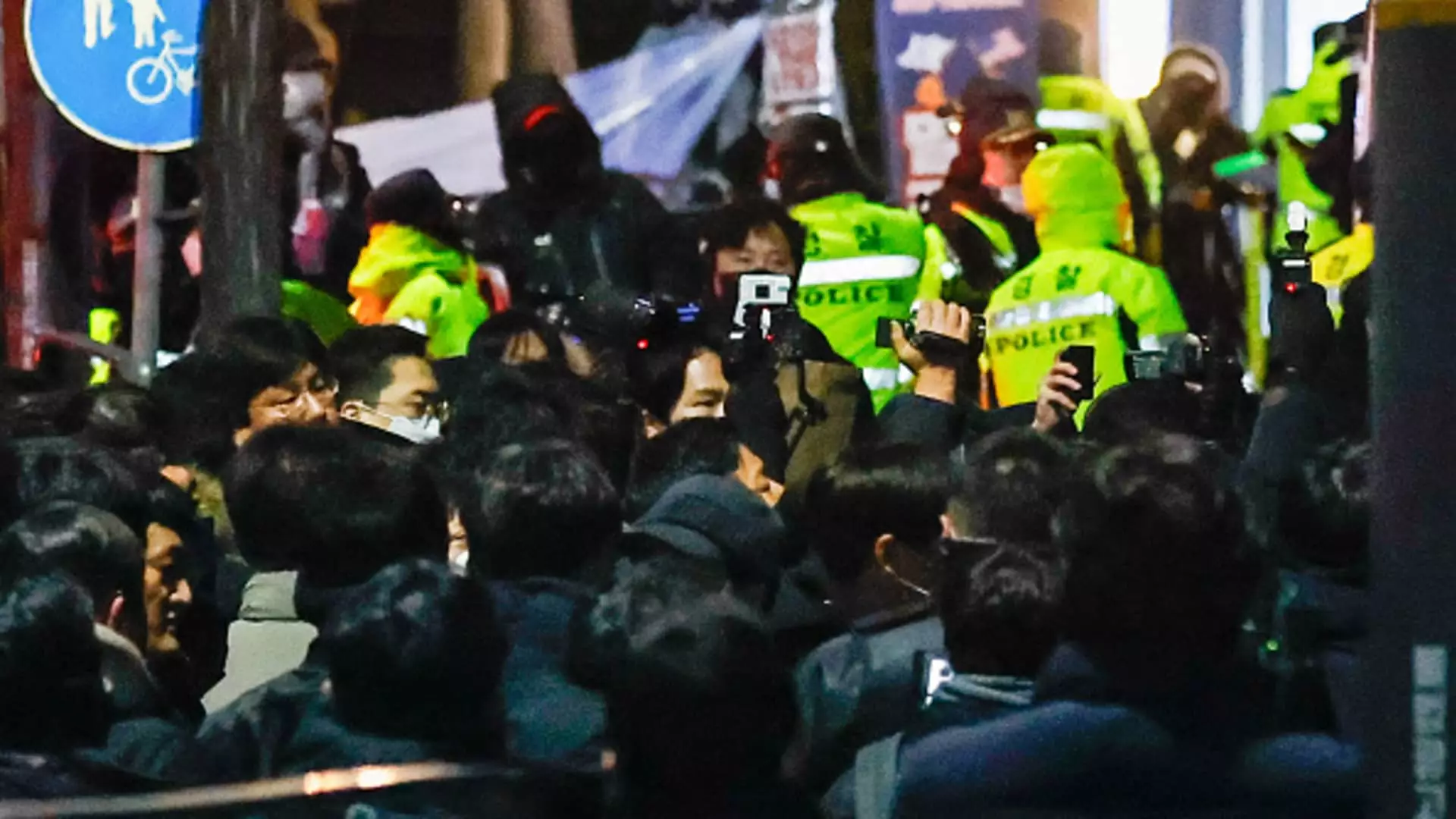In a startling turn of events that shakes the foundation of South Korean politics, President Yoon Suk Yeol has reportedly been arrested by the nation’s Corruption Investigation Office for High-Ranking Officials. This unprecedented situation marks the first instance of a sitting president facing arrest, raising critical questions about political accountability and the state of governance in South Korea. The initial attempt to apprehend Yoon on January 3 was thwarted by the president’s security personnel, showcasing the intensity of the standoff between the government and law enforcement agencies.
The grounds for this second arrest attempt appeared to stem from Yoon’s failure to comply with a summons for questioning, leading to a judge’s issuance of an arrest warrant. Following the failure of the first attempt, approximately 3,000 police officers were deployed to navigate the president’s residence, signaling a significant mobilization of law enforcement. This indicates not only the high stakes involved but also the lengths to which authorities are willing to go in a matter marked by deep political ramifications.
Yoon’s response has been equally dramatic. In a pre-recorded video, he asserted that “the law of the country has collapsed,” labeling the investigation as unlawful. This rhetoric highlights a tense climate, reminiscent of crises where the lines between legality and political maneuvering become increasingly blurred.
In the wake of this turmoil, South Korean financial markets exhibited a tepid response. While the Kospi index saw a marginal rise, the small-cap Kosdaq dipped, suggesting investor uncertainty regarding the implications of the arrest proceedings. Furthermore, the South Korean won depreciated slightly against the U.S. dollar, which could reflect broader concerns about economic stability under such political turbulence.
The arrest and impeachment of a sitting president undoubtedly evoke public reactions ranging from apprehension to outrage. As Yoon faces charges including insurrection—stemming from his controversial martial law declaration during a time of mounting tensions with North Korea—the potential for civil unrest looms, especially since this declaration was met with swift legislative pushback.
The swift actions by lawmakers, who overrode Yoon’s martial law announcement within days, culminated in his impeachment on December 14. This drastic measure signals a strong stance by the country’s legislative body against perceived overreach of executive power. As the Constitutional Court prepares to hear his impeachment trial, the political future of Yoon hangs in the balance.
This unfolding saga goes beyond mere legal proceedings; it signifies a decisive moment for South Korean democracy. With presidential immunity not applicable to the charges Yoon faces, it raises critical questions about how power is exercised and the accountability mechanisms required in a democratic society.
Overall, whether Yoon will ultimately evade accountability or be seen as a martyr of political strife remains uncertain, but one thing is clear: South Korea stands at a historical crossroads that will shape its political landscape for years to come.


Leave a Reply